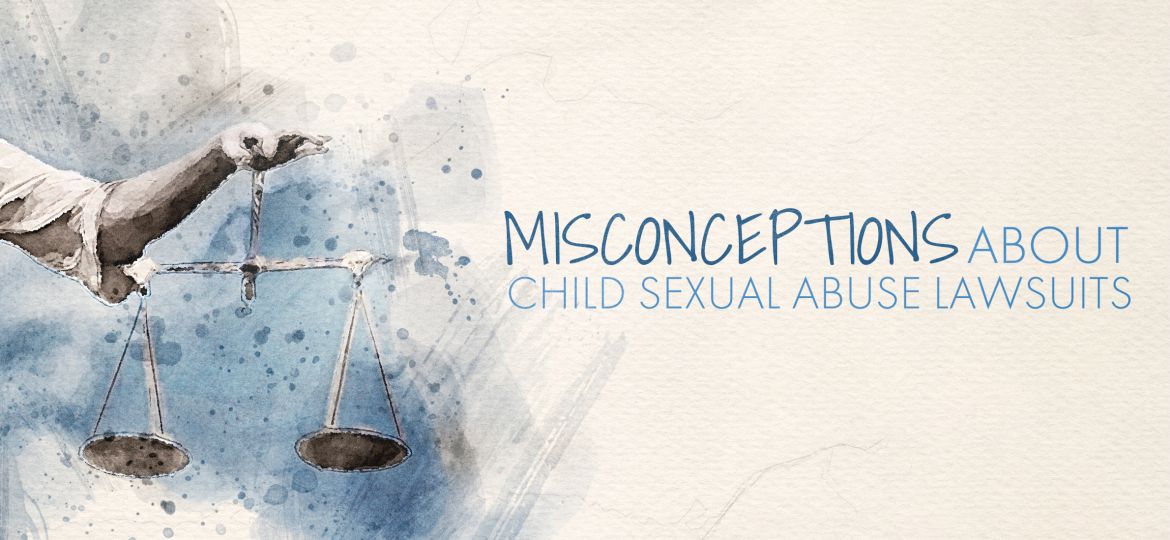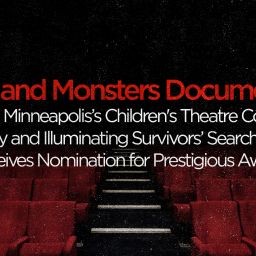With all cases of sexual abuse, there are many questions and misperceptions about what steps a survivor can take.
It’s estimated that every nine minutes, there is a reported or substantiated claim made of child sexual abuse. Of those, only 33% of them end up being reported to police.
Our firm, Jeff Anderson & Associates, seeks to empower survivors to not only take back their own story and their power, but also help protect kids in the future. As part of that mission, we want to clarify some common misconceptions about filing a sexual abuse lawsuit.
I don’t have any proof for my case, so nothing can be done.
One of the most important parts of any story and court testimony is the survivors’ own experience. They were there; they know what happened; they are credible; this empowers the survivor. This helps validate a survivors’ voice and own experience, as well as being a crucial part of a case.
Predators are cunning and manipulative and, because of the psychological hold they often have on survivors, they can pressure
Often, predators abuse multiple victims. If other victims or witnesses can be identified, they can help corroborate stories between survivors. There are often many ways that a survivor’s story can be validated – that is the job of attorneys and the law firm. Survivors should not worry about a lack of evidence and should reach out to a law firm that will take care of that for them.
My abuse wasn’t that bad compared to others, so it’s not a big deal.
Each case of abuse is unique and impacts survivors differently.
Sexual abuse is sexual abuse, regardless of the type of conduct involved. And all of the circumstances surrounding the sexual abuse, including for example the grooming, the survivor’s vulnerability, the relationship between the survivor and the offender, all are part of the harm done to a survivor and the impact they experience. Survivors are impacted in many different ways. The only person who can judge how the abuse affects a survivor is that survivor.
Survivors deserve to take back justice on their own, regardless of how their abuse or circumstances of abuse compare to others.
Abuse is abuse.
I have a troubled past, up until this point, so no one will believe me.
Research studies have found, time and time again, that childhood sexual abuse has a significant link to adverse behaviors – like substance abuse disorders, risky sexual behavior, increased STI rates, and mental health problems.
Coming forward will not cure any survivor of any disease. But our firm has found, with decades of experience, that survivors may find improvements in their mental and/or physical health through engaging in a healing process that includes speaking out.
Filing a lawsuit won’t make any difference to me.
Even if a survivor doesn’t think that a lawsuit is going to help them personally, bringing a lawsuit forward can help prevent other cases of child sexual abuse.
Predators often have many victims. Even just one case can break the dam of accusations against a predator.
Especially if a predator is still in a position of power, coming forward can sometimes be enough remove a predator from their position of power or eliminate their access to children, and by that, prevent further harm that they could bring to other children.
It’s important to note that coming forward and taking legal action is the survivor’s choice – no one else’s. If a survivor does not want to pursue the path of filing a lawsuit, they shouldn’t do it.
If a survivor is considering taking legal action, but is hesitant, it can be helpful to reexamine the potential benefits:
- Expose the abuse and manipulation of a perpetrator.
- Expose cover-up by a church, school, or other institution.
- Prevent other kids from being abused.
- Help other survivors feel less alone.
- Tell your story in a manner backed up by credible, serious action.
- Help your community come to terms with past denial or victim-blaming.
- Help the community become more supportive of survivors and vigilant about watching out for predators and signs of abuse.
- Obtain justice for the wrong done to you and others.
- Reclaim your voice and power that you may have felt you lost as a child.
- Attain monetary compensation to reflect accountability, aid access to support and healing services, and create a more stable and prosperous future.
There are also other ways to take action, like reporting a predator to police or the institution where the abuse occurred. Even if they can’t do anything based on the one report, taking note of the abuse could help be a piece of evidence for other survivors.
I want to be anonymous, but people are still going to know that I’m filing a lawsuit.
In many states, there are laws that allow survivors of sexual abuse to file lawsuits without disclosing their identity. When this is permitted by law or the courts, all parties involved in the suit are required to keep the survivor’s name confidential. This protects a survivor’s privacy and allows them to engage in the civil process in a safe and confidential way.
If you are nervous or apprehensive about this, you can contact a trauma-informed law firm and they can answer your questions while maintaining your anonymity.



